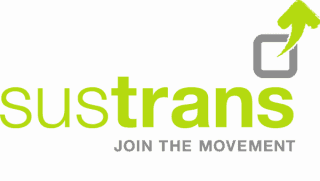Incorporating physical activity into participants’ lifestyles
- Portfolio total project costs: £5,403,158
- Total funding received from BIG: £3,615,000
- Total number of beneficiaries: 113,989
Activities
Sustrans’ Active Travel Consortium delivered a portfolio of 19 projects, in partnership with Living Streets, Ramblers, the London Cycling campaign (LCC) and CTC, the national cycling charity. The overall portfolio engaged 113,989 beneficiaries, against a target of 53,450
The Active Travel Consortium portfolio promoted increased walking and cycling for everyday journeys/ daily routines through 19 projects delivered in a range of settings across England. For example:
- Travel Champions – West Herts and Bedfordshire – this Sustrans-led project recruited and supported volunteers to lead walks, cycle rides or events promoting walking or cycling. Activities were designed to reach hard-to-reach groups, such as a school-based walks for mums that started immediately after school drop off time, and a carers’ walking group – to provide a sociable exercise activity for carers during respite time (carers could also bring the person they cared for along as all walks were wheelchair accessible).
- Inclusive Cycling Champions – led by CTC in partnership with other cycling projects. The project created a network of cycling centres and provided capacity building to improve services (where inclusive cycling already existed) or support to introduce a new scheme.
- Walk to Work – led by Living Streets, this project continued a project established through Wellbeing 1 to encourage employees to get walking by targeting workplaces. The Wellbeing 2 project developed and enhanced digital resources, such as increasing the accessibility of the Walk to Work website on different platforms/channels.
Participant/ community impacts and sustainability
The portfolio reported good outcomes in relation to the physical activity theme. The portfolio reported that 29,901 beneficiaries had become more physically active by the end of the grant, compared to a target of 15,431 beneficiaries20. The Inclusive Cycling Champions project led by CTC was particularly successful, reaching 17,373 beneficiaries against a target of 4,400. Of these, 15,364 beneficiaries reported that they had participated in led activities outdoors with others through the CTC project. The Walk to Work project also produced very positive outcomes, recruiting 25,021 beneficiates compared to a target of 15,000. Of these, 8,007 participants reported that their physical activity levels had increased through the project, compared to a target of 6,750 participants.
Sustrans case study
In terms of the portfolio’s change indicators, the portfolio aimed to actively involve 4,070 people in their community, and had recruited 4,170 individual volunteers by the end of the grant. The portfolio also aimed to increase the awareness of at least 1,880,000 people around opportunities to become physically active through active travel. The portfolio over-achieved on this target, reporting that 2,086,804 individuals had increased awareness of the opportunities and benefits of active travel by the end of the grant22. 113,989 people participated in walking, cycling and other activities organised by the portfolio.
According to project staff, some participants reported improved fitness and weight loss, however it should be noted that this is anecdotal feedback. These impacts were achieved by building physical activity into participants’ daily routines. Participants often gradually increased the intensity or duration of their exercise. For example, some of the school mums started leaving the car at home and walking their children to school, in addition to participating in an organised walk from the school gates. As well as increased physical activity levels, participants across the Sustrans portfolio commonly reported a reduction in loneliness and depression as a result of becoming more confident to travel outside of the home or as a result of acting as a volunteer.
The CTC Inclusive Cycling project enabled participants with a mental or physical disability, a life-limiting conditions or accessibility limitations to experience the outdoors and nature, deriving benefits for their mental wellbeing in addition to their physical health. It also engaged the families and carers of people with a mental or physical disability to participate. The 1-2-1 support provided through Wellbeing 2 enhanced participants’ quality of life by giving them the opportunity to cycle. The CTC Inclusive Cycling project exceeded its participation target by 400%.
→Further details and references in the Wellbeing 2 evaluation.

